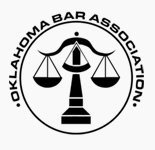Being charged with the duty of preparing payroll for a Texas business entity is an important task that should not be taken lightly. Most companies have a designated payroll clerk who will calculate wages and employment tax deductions, including Social Security and Medicare taxes, but payroll for smaller private businesses will often be handled by personal owners or other designated clerks or secretaries. It is vital that each employee who works in this process understand the IRS Trust Fund Recovery penalties associated with failure to properly report and pay these funds to the Internal Revenue Service.
Personal responsibility requirement
Handling company money is different from handling personal finances. Every action taken can have some type of external fiduciary impact that affects even the worker preparing the payments. The IRS Trust Fund Recovery law allows these individuals to be pursued for the financial discrepancies when they purposely withhold deductions from payroll or company excise taxes. For business owners, willful acts can even include paying outstanding business debts before making financial transfers to the IRS for deducted payroll taxes.
What the Trust Fund Recovery Penalty can require
The first step that the IRS can take for failure to transfer payroll taxes is withhold tax returns for the charged employee or the third-party payroll service. In addition to withholding tax returns, an additional penalty can be assigned, or the IRS can move to seize personal property in serious cases of purposely withholding payroll taxes.
IRS Trust Fund Recovery penalties are typically equivalent to the unpaid balance of either the withheld payroll taxes or withheld excise taxes for those willfully failing to meet their employment tax-transfer obligations. It is important for all payroll personnel to understand this law and know that an offer in compromise may not be acceptable when the IRS is pressing a Trust Fund Recovery case.












